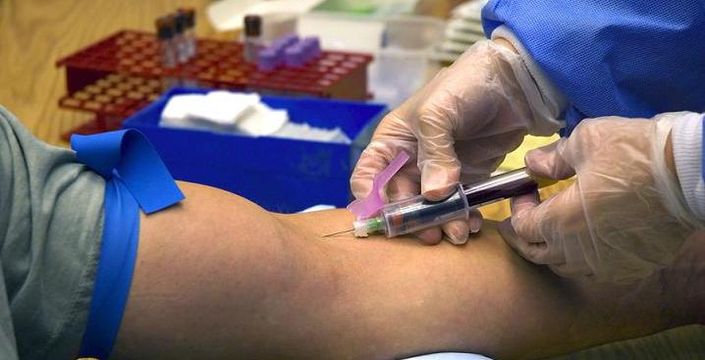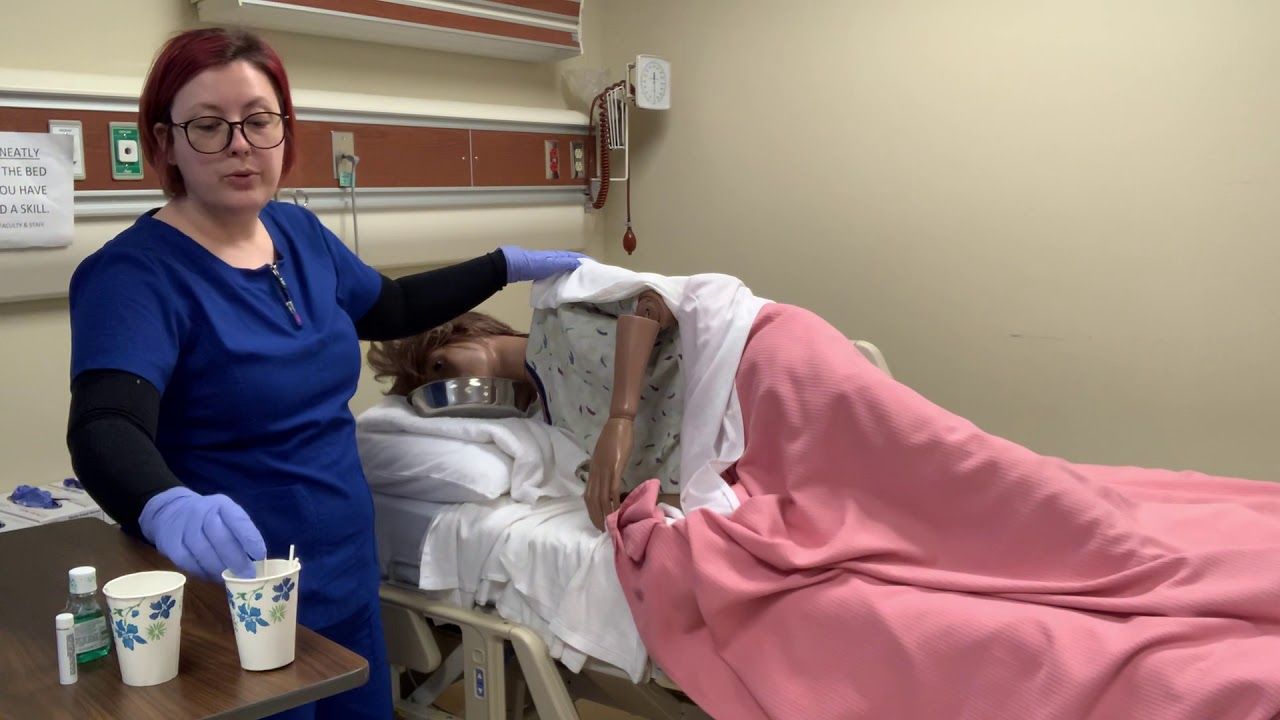
Michigan : Phlebotomy (64 hrs) Hybrid.
Contact School Before Enroll in Hybrid Course $600 + $38 tech. fee
Enroll in Course
Phlebotomy Online Lecture with in class/site Lab Skills and Blood draw
Course Description:
Phlebotomist develops skills in the performance of a variety of blood collection methods using proper techniques and universal precautions. The techniques include vacuum collection devices, syringes, capillary skin punctures, butterfly needles, and blood cultures as well as specimen collection on adults, children, and infants. Emphasis is on knowledge of infection prevention, proper patient identification, labeling of specimens and quality assurance, specimen handling, processing and accessioning. Topics include professionalism, ethics, and medical terminology. The course utilizes an online delivery utilizing Blackboard and a student laboratory and/or clinical site lab for experiences in basic phlebotomy procedures.
Required Text & Material:
Phlebotomy Essentials 5th (Or most recent) edition by Ruth E. McCall and Cathee M. Tankersley LWW 2012, ISBN 13: 978-1-60547-637-7
Supply List:
1 lab coat to use in the student lab or clinical lab
1 black ink pen
1 Sharpie
1 binder/notebook
1 watch with a second hand
1 box of gloves (label box with your name)
You must have access to a reliable computer with an Internet connection. Having a high-speed Internet connection is preferred (at least 56k).
Course Objectives and Learning Outcomes:
The student will demonstrate knowledge of infection control and safety; understanding of quality assurance and the importance of specimen collection in the overall patient care system; as well as knowledge of collection equipment, various types of additives used, special precautions necessary, and substances that can interfere in clinical analysis of blood constituents. The student will demonstrate proper techniques to perform venipuncture and capillary puncture on adults, children, and infants; and demonstrate the knowledge of requisitioning, specimen transport and specimen processing.
After completion of PLAB 1223 the student should be able to meet the following general course objectives:
1. Collect and process routine laboratory specimens.
2. Recognize and apply principles related to the use of laboratory information systems used in the phlebotomy department.
3. Perform analytical procedures routinely tested in the phlebotomy department.
- Recognize factors that affect methods and test results and take appropriate actions within established guidelines using the skills of critical thinking and problem solving.
- Recognize the clinical significance of laboratory procedures commonly performed by the phlebotomy department.
6. Perform and monitor routine departmental quality control within established guidelines by applying the principles of critical thinking and problem solving.
7. Perform preventive and corrective maintenance of equipment and instruments and refer to appropriate sources as necessary.
8. Apply and encourage the use of the principles of laboratory safety, including Universal Precautions.
9. Demonstrate professional conduct and interpersonal communication skills with patients, laboratory personnel, other health care professionals, and with the public.
10. Recognize the responsibilities of other laboratory and health care personnel and interact appropriately with them for quality patient care.
11. Apply basic scientific principles in learning new techniques and procedures.
12. Relate laboratory test results to common disease processes by recognizing the principles and methodologies practiced in the department.
13. Establish and maintain continuing education as a function of growth and maintenance of personal and professional competence
Rationale
Phlebotomists as must demonstrate proficiency in the practice of blood collection as a fundamental part of clinical laboratory training. This course is designed to aid students academically, mentally and emotionally for the experiences they will encounter in the clinical or workplace setting.
Learning Outcomes
Learning outcomes, or specific course objectives, for the cognitive, affective, and psychomotor domains are listed for each unit and will be available to students on the first day of class via online platform
Methods of Instruction:
This Phlebotomy course is designed to prepare students to function at an entry-level phlebotomy position in a clinical laboratory setting. Lectures, demonstrations, practice sessions, laboratory exercises, Internet exercises, discussion boards, streaming video, recordings, and resource applications will be used and made available on online platform for student access during the course.
Course Outline:
1. Phlebotomy: Past and Present and the Healthcare Setting
2. Quality Assurance and Legal Issues
3. Infection Control, Safety, First Aid, and Personal Wellness
4. Medical Terminology
5. Human Anatomy and Physiology Review
6. The Circulatory System
7. Blood Collection Equipment, Additives, and Order of Draw
8. Venipuncture Specimen Collection Procedures
9. Blood Collection Variables, Complications, and Procedural Errors
10. Skin Puncture Equipment and Procedures
11. Special Collections and Point-of-Care Testing
12. Arterial Puncture Procedures 13. Nonblood Specimens and Tests
14. Computers and Specimen Handling and Processing
The class schedule (calendar) will be made available the first day of class via online platform.
Course Requirements:
- Course Breakdown
- Examinations
- Assignments
20% Examinations
50% Final Examination
30% Laboratory Exercises and Assignments Grades will be posted on online platform.
There are four major examinations plus the final exam. All are comprehensive and available online and face-to-face. No student will be allowed to make up more than one examination.
Your assignment grade will include quizzes, projects, lab exercises, discussion boards, and homework. Students must pass lab assignments with a grade of 75 or above. If the student does not make a passing grade, s/he must re-do the laboratory until s/he achieves an acceptable grade of 75 or above.
Equal Opportunity Statement:
Health Career Solutions provides equal educational opportunity for all qualified students and does not discriminate on the basis of sex, disability, race, creed or religion, color, age, national origin or any other unlawful factors in its educational programs, activities, or employment as required by Title VI and Title VII of the Civil Rights Act of 1964, Section 504 of the Rehabilitation Act of 1973, title IX of the Educational Amendments Act of 1972 and the Age discrimination Act of 1978.
Subject to Change Disclaimer:
The policies, regulations, procedures, and fees associated with this program are subject to change without prior notice, if necessary, to keep Health Career Solutions and program policies in compliance with State and Federal laws and/or with rules related to the program's accrediting agency. The School and the program reserve the right to change curricula, rules, fees, and other requirements, of whatever kind, affecting students in any way. The provisions of this document do not constitute a contract, express or implied, between any applicant, student, faculty or staff member and Health Career Solutions or this program.
Your Instructor

Course Curriculum
-
StartAcademic Honesty Policy, Syllabus, Welcome (4:51)
-
StartPhlebotomy Skills Video
-
StartPower Point Lab Safety Audio Lecture's
-
StartPowerPoint (.pptx) Audio Lecture's Lab Collection & Work Sheets
-
StartKey Terms For Test 1 to 4 Exam (73:07)
-
StartTest #1
-
StartTest #2
-
StartTest #3
-
StartTest #4
-
StartKey Terms for Test 5 and 6 Exam (69:25)
-
StartTest #5
-
StartTest #6
-
StartPhlebotomy Final Exam You Must Achieve an 80% or Better in Order To Pass the Course.
-
StartCareer Development
